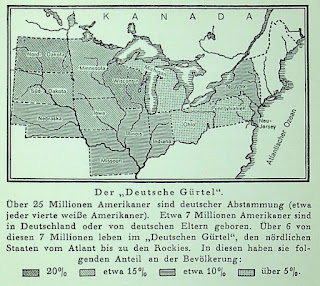Colin Ross, "Unser Amerika", Chapter 10
10. A German Founds Holland's and Sweden's American Colonies The dark storm cloud which for years and decades had been gathering ever more threateningly over Germany had burst, the great religious war had broken out. Thus the German people were paralyzed at the very moment when a new world was opening up and the earth was being divided. Nevertheless, the Thirty Years' War is not in itself a sufficient explanation why Germany fell so far behind in the distribution of the world. After all, it was not only a German war, but a general European war; Sweden and Poland, Denmark and Holland, England, France and Spain were more or less involved in it. However, this did not prevent the others, especially the Western powers, from nevertheless securing the largest colonial empires for themselves; indeed, the English one actually only came into being under constant battles against European opponents. The religious discord was not limited to Germany either, and the Huguenot wars in Fra...
